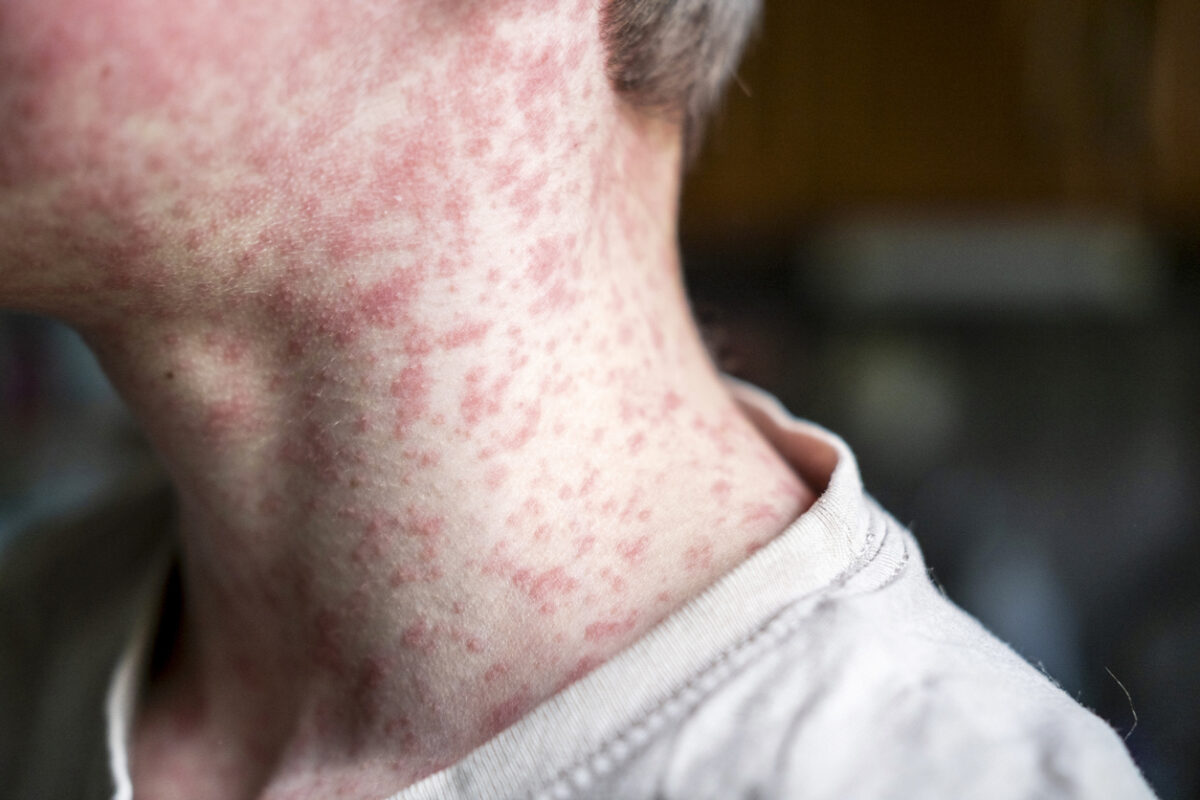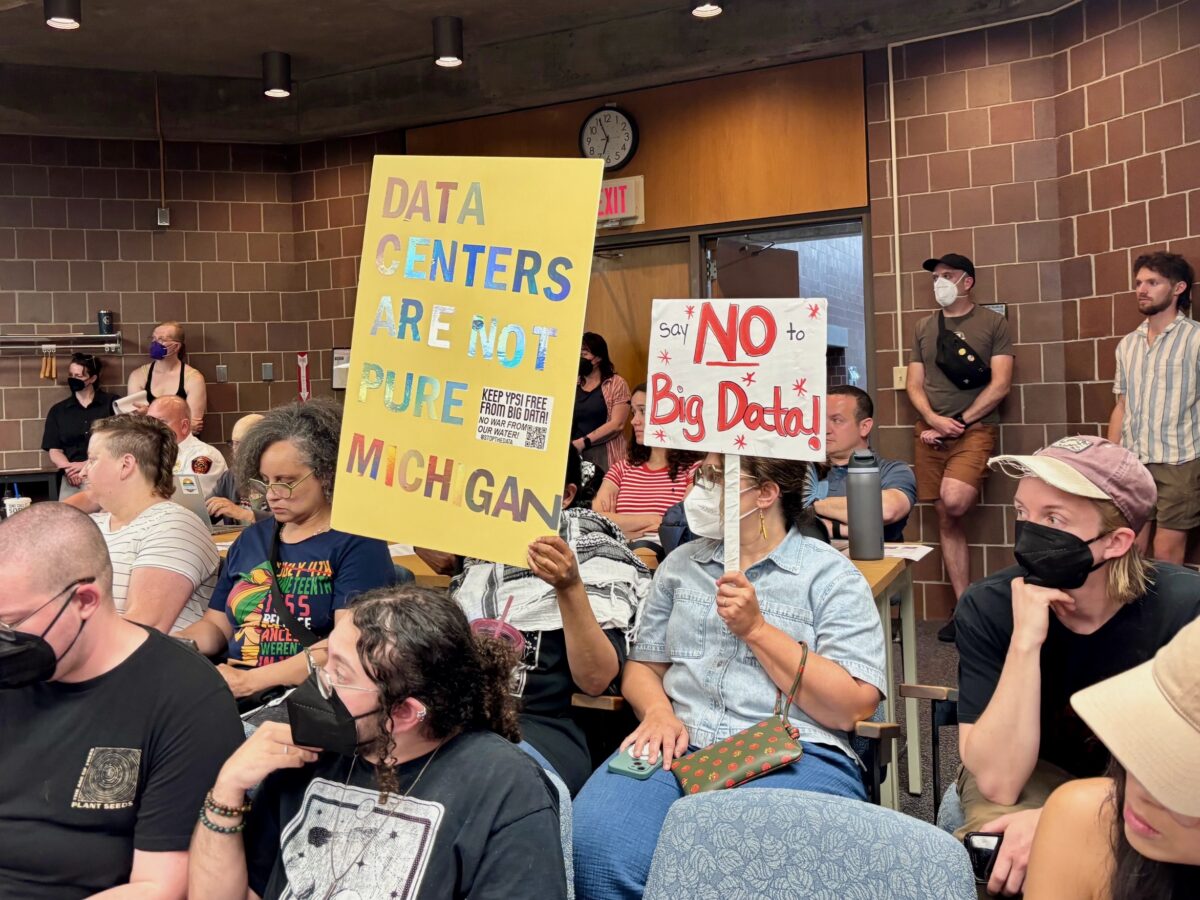Overview:
-Health officials warn that declining vaccination rates could put Michigan at risk as measles outbreaks spread in Texas, New Mexico, and other states.
-Measles, a highly contagious disease, can lead to severe complications, with unvaccinated individuals being extremely vulnerable.
-Falling vaccination rates and travel are driving the outbreak, and experts caution that measles' infectiousness could signal a resurgence of other vaccine-preventable diseases.
A measles outbreak has infected hundreds in Texas, New Mexico, and several other states, and health officials say declining vaccination rates could put Michigan at risk as well.
The Great Lakes State saw its first measles case of the year Friday.
Measles is a highly contagious disease that can lead to pneumonia, hearing loss, encephalitis, hospitalization, and death, with children being especially vulnerable.
Most U.S. residents are vaccinated for measles, but the lack of other exposure to the disease means unvaccinated individuals generally have no immunity, according to Dr. Natasha Bagdasarian, chief medical executive for the Michigan Department of Health and Human Services. The contagiousness of the disease adds to the risk for unvaccinated individuals, making them extremely vulnerable.
“Measles is one of the most transmissible diseases that we see in the infectious disease world,” Bagdasarian told Planet Detroit, noting the disease can linger in airborne particles for up to 2 hours. This translates into a 90% infection rate. In other words, nine in 10 people lacking immunity who come into close contact with an infectious person will become infected.
Falling vaccination rates, both in the U.S. and abroad, and travel are driving the measles outbreak, health officials say. They warn that measles outbreaks can be highly localized, affecting non-vaccinated populations, even in areas that have a high vaccination rate.
“What matters most is what’s happening in your very local community,” Bagdasarian said, encouraging parents to check school immunization data to get a sense of potential risks for their children.
Michgan measles: Where metro Detroit ranks in vulnerability
Detroit and its suburbs aren’t among the Michigan counties with the lowest immunization rates. The percentages of 19-35-month-olds who have received one or more doses of the highly effective measles-mumps-rubella vaccine still fall below the national average of 93.4%. According to MDHHS data, as of Dec. 31, 2024, vaccination rates for toddlers in metro Detroit were:
- Detroit: 75%
- Oakland County: 82.2%
- Macomb County: 80%
The most recent number for 19-35-month olds in Wayne County, excluding Detroit, is 80.2%, according to Dr. Avani Sheth, Wayne County chief medical officer.
MDHHS’ Bagdasarian said the number of children statewide in this age range who had received at least their first dose of the MMR vaccine fell from about 76% before the Covid pandemic to 70% after, with some areas seeing steeper declines than others.
The number of parents seeking vaccine waivers for their children has also risen. After hitting a low of 3.1% in 2015, this number surged to 5.7% in 2023, according to MDHHS.
Vaccination rates increase among children as they enter kindergarten, and the overall vaccination rate is near 90% statewide, Bagdasarian said. Detroit Chief Public Health Officer Denise Fair Razo said that Detroit’s MMR vaccination rate is 89% for children 4 and older.
Outbreaks are more likely to occur when community vaccination rates fall below 95%, according to the Centers for Disease Control and Prevention.
Bagdasarian said low levels of protection for young children present significant dangers for those who are immunocompromised, receiving chemotherapy, have had organ transplants or can’t receive vaccines for medical reasons. The risk of infection extends to family members who have similar issues.
On Friday, March 14, Oakland County confirmed Michigan’s first measles case of 2025, according to WXYZ. The case is connected with international travel and others may have been exposed between March 3 and March 10.
2025 has seen significant outbreak in areas that are only a short flight or drive from metro Detroit. According to the Guardian, this year’s number of total U.S. cases is over 250, surging toward 2024’s total of 285, and it’s only mid-March.
Comparing the first two-and-half-months of 2025 to previous years, Bagdasarian said this year is worse than almost any year since 2000. 2019 also started off with a large number of cases. There were 704 cases in the U.S. by April 26, 2019 and a total of 1,274 for the year, according to the CDC.
Misinformation, Covid disruptions drive vaccination decline
Before the measles vaccination program began in 1963, an estimated 3 to 4 million people were infected annually and there were roughly 500,000 official infections annually. Each year, between 400 and 500 died. And many more were hospitalized or developed encephalitis, or swelling of the brain.
By the early 1970s, infections had plummeted to the tens of thousands and in 2000 the disease was declared “eliminated” in the U.S., meaning it hadn’t been spreading continuously for 12 months.
Bagdasarian calls the measles vaccine, with its ability to prevent 97% of infections, “miraculous.” Yet the vaccine has been so successful that many are unaware of the harm measles caused a few generations ago.
“Public health has been a victim of our own success,” Bagdasarian said.
“We have done so well at either eliminating diseases or making diseases so uncommon that not only has the general public forgotten what some of these diseases are, but even physicians haven’t seen them.”
The outbreak of cases this year is being driven, in part, by declining vaccinations both in the U.S. and abroad, according to Dr. David Higgins, a pediatrician and preventive medicine expert at the University of Colorado Anschutz Medical Campus.
“Diseases like measles do not respect country or state borders,” Higgins said.
“Around the world, with the COVID-19 pandemic, we saw a drastic decrease in vaccination for measles, and most of this was driven, especially initially, by barriers in access and delivery of vaccines.”
Issues like supply chain disruptions led to fewer vaccinations internationally. In the U.S., a drop in vaccination was driven by changes in health behaviors and a spike in vaccine misinformation during the Covid pandemic, Higgins said.
During the pandemic, fewer families took their children to “well child” visits, where vaccinations are often given. Higgins said this may have been the result of fear of contracting Covid at a doctor’s office.
Misinformation, often spread on social media, created distrust and led to a decline in vaccinations, Higgins said.
“Measles is so incredibly contagious that when vaccination rates drop in a community or in a state or country, it’s not a matter of if an outbreak is going to occur; it’s a matter of when it’s going to occur,” he said.
International travel is also fueling outbreaks, with the threat mostly coming from unvaccinated Americans who travel to other countries, according to the CDC. Many popular travel destinations, including the United Kingdom, Israel, India, Japan, and the Philippines have experienced measles outbreaks in recent years.
Experts say the infectiousness of measles means it could be an early warning that other vaccine-preventable diseases may begin circulating in high numbers as well.
Bagdasarian said Michigan saw four times the normal level of pertussis, or whooping cough, cases last year and she fears there will be a resurgence of diseases like polio.
“People forget that the reason why we can expect our children to grow up and attain adulthood today (is) because of public health interventions,” she said, citing vaccines, along with clean water and antibiotics, as a primary driver for the decline in childhood mortality.
“For us to be taking a step backwards because people aren’t using those tools makes me very sad.”
Editor’s note: This story was updated to include a report of Michigan’s first measles case of 2025 on Friday in Oakland County and further updated to reflect a correction by Wayne County to its measles vaccination rate for toddlers: it is 80.2%.
THE LATEST FROM PLANET DETROIT
What we’re reading: Detroit’s bus stops bake in the heat
In other news, Detroit City Councilwoman Mary Waters calls for an investigation into a fire at an east side oil recycling facility.
University of Michigan’s ‘big bad data center’ faces opposition from top Ypsilanti Township official
Supervisor Brenda Stumbo says University of Michigan misled her about the size of the project and voiced concerns about noise, vibration, and possible environmental impacts.
Michigan air quality alert issued for July 4
As fireworks light up the sky this July 4, Michigan’s Department of Environment, Great Lakes, and Energy warns of unhealthy air conditions impacting Metro Detroit and Lake Michigan shoreline communities. With pollution levels rising, sensitive groups, including children and older adults, face heightened risks.




